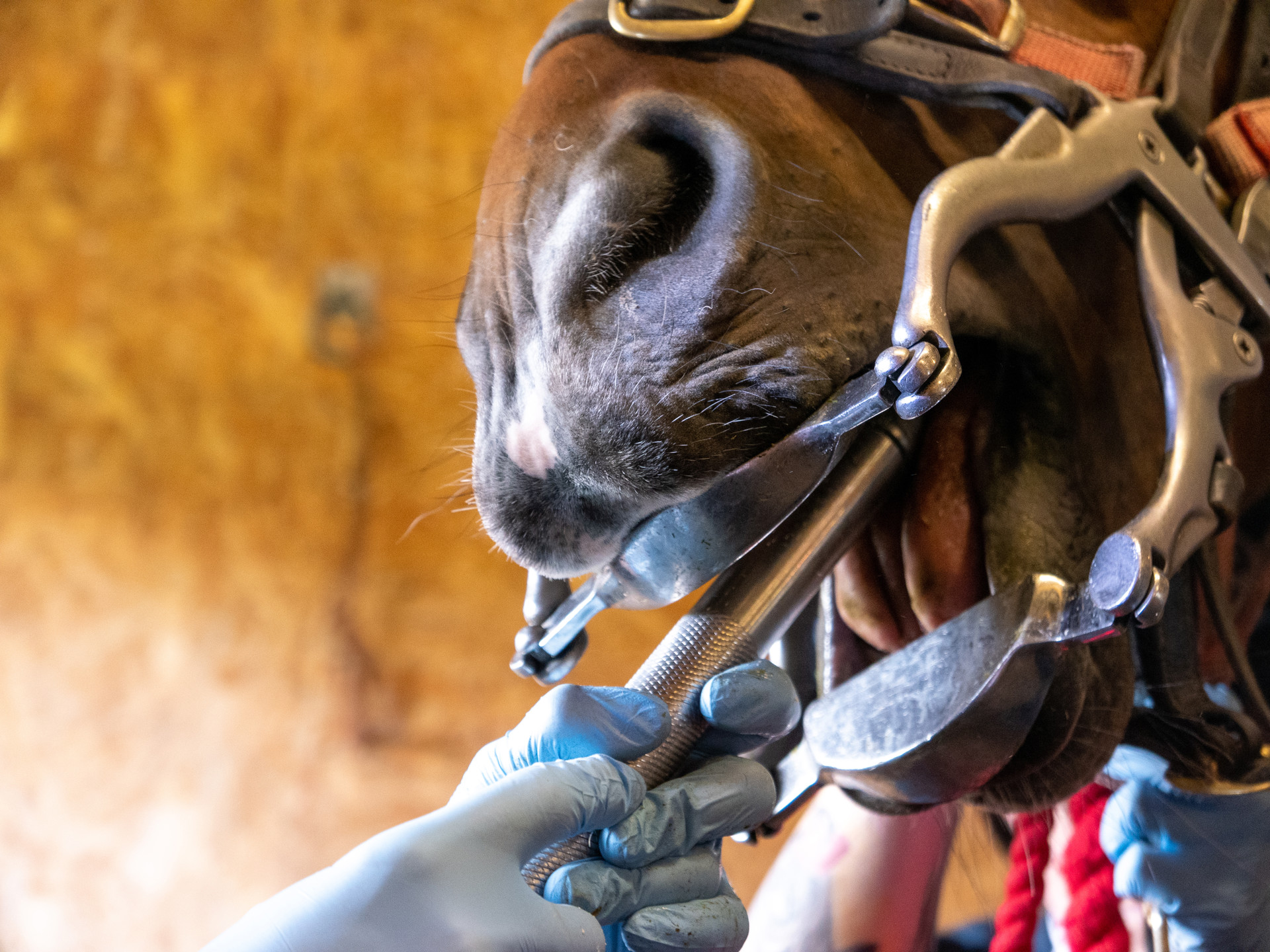Wolf Teeth
17 Apr 2019
They usually sit just in front of the upper cheek teeth, though very occasionally we do see wolf teeth in the lower jaw. They are extremely variable in size, varying from small pegs only a few millimetres in diameter, to having roots up to 2 cm long.
It is impossible to guess the size of the tooth from it’s crown, but if the tooth is wobbly it is unlikely to have a large root. Some wolf teeth may be displaced, lying at an angle, or may even be sitting underneath the gum line as “blind” teeth. Wolf teeth should not be confused with the much larger canine teeth which are positioned further forward in the mouth.
Sometimes, wolf teeth are shed when the first deciduous (baby) cheek tooth is lost, and sometimes they are knocked out or damaged during routine dentistry. It is commonly believed that wolf teeth cause problems with some horses when they are bitted. This can certainly be the case if the teeth are sharp or displaced, though studies have shown that the bit actually sits nearer the lower teeth than the upper ones

Why remove wolf teeth?
Wolf teeth should not need to be removed if the horse is not ridden or bitted, or is working well in his bridle. Reasons to remove wolf teeth include: young horses before backing, displaced or “blind” wolf teeth, doubt about bit comfort, lower wolf teeth, wobbly wolf teeth.
Many trainers prefer to start bitting a young horse with no potential wolf tooth complications. Displaced or sharp wolf teeth can cause pain when the pressure of a bridle is applied. Wolf teeth in the lower jaw will almost certainly interfere with the bit, and wobbly ones are likely to cause irritation and possible ulceration.
Your horse will be sedated, and local anaesthetic is injected to numb the nerves around the teeth. We use instruments to cut the gum and slowly break the ligaments holding the teeth in place. When the teeth are finally loose, they can be gently pulled out with forceps. After removal, your horse should be given tetanus anti-toxin, if he has not been vaccinated, and will need up to 10 days off work without a bit in his mouth.
Despite extreme care in removal, some wolf teeth may fracture leaving a fragment of root deep in the gum. These fragments do not always cause a problem, but may work loose at a later date and require future extraction. Some retained roots do seem to cause pain, so it is prudent to have them removed. Occasionally, x-rays will be necessary to confirm the presence of root fragments.
If your horse has wolf teeth and you are uncertain if they should be removed, please arrange an examination by one of our vets.